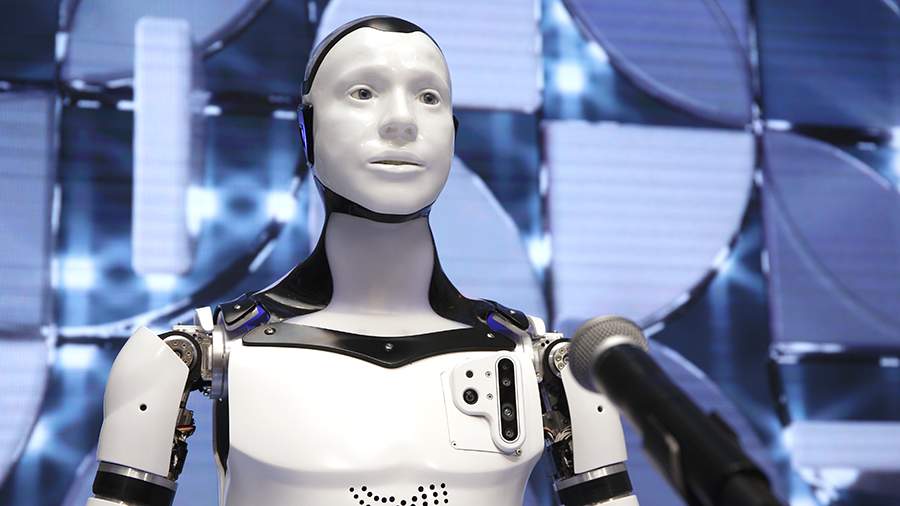Experts predicted a multiple acceleration of AI adoption in industries in 2025

In 2025, a multiple acceleration of artificial intelligence (AI) implementation in industries is expected, according to the data of the Alliance in the field of AI, which were reviewed by Izvestia on January 16. Experts from the Alliance's industry clubs spoke about the trends in the development of such technologies.
According to analysts' information, in 2024 the deepest penetration of AI is revealed in the financial industry, as well as in the agro-industrial complex (AIC), healthcare, transportation and construction.
Thus, classical AI is actively used by agricultural companies to solve a variety of tasks, such as forecasting crop yields, monitoring crops, and determining optimal conditions for cultivation and storage. The technologies help automate processes, reduce costs, increase yields and increase the volume of finished products.
The Alliance cited the example of an AI tracker for the condition of cows on a farm. Smart sensors are used to collect data from the animals to track individual cow characteristics and behavior. The information is aggregated and fed into an LLM model, which processes them and provides care recommendations and an overall status on the condition of each animal in a chatbot interface. The technology has the effect of reducing treatment costs by 15% and increasing animal productivity by 10%.
Belaya Dacha Agroholding suggested that the foreseeable future will see a trend towards the development of AI-based decision support systems.
"These decision-making systems, in turn, may prompt the development of digital twins of plants, for another source of data modeled in a risk-free environment. The need to monitor the condition of plants at different stages of the life cycle during cultivation, as well as subsequent quality control of products and raw materials will contribute to the development of machine vision, because often these operations are difficult to perform due to the large volume of crops and / or difficult terrain," - specified there.
The AI Alliance added that AI technologies have become an important tool for diagnosing diseases, especially in the field of oncology and cardiology. Deep learning algorithms help doctors analyze medical images, detect anomalies and make diagnoses faster and more accurately.
At the same time, the system of support for medical decision-making for prescribing therapy and taking into account risks due to individual patient characteristics allows doubling the increase in the quality of medical services.
"There is a growing trend in healthcare towards AI analysis of hybrid data: images, text and video, which opens up new opportunities for diagnosis and treatment. Processing data from wearable devices, electronic medical records, and questionnaires all carry potential - all of which engage audiences. The third driver is the growing interest in AI education and the formation of new specialties combining medical and computer science knowledge. We should also note the benefit of fixing the tariffs for processing medical images using AI," the company told Platform Third Opinion.
At the same time, in the construction industry, various AI technologies are used from building forecasts to controlling dangerous situations at the site. Artificial intelligence helps to assess the quantity and cost of resources, track the location and use of machinery, control the quality of work, reduce risks and ensure safety at the site.
"In 2025, Russian development companies will continue the trend of introducing AI into their business processes. At the same time, there is already a trend to change the processes themselves for the use of AI. For example, in resource planning, the process of purchasing construction materials may change from purchasing them when they are needed to purchasing and storing them in advance in order to minimize costs. Another example from the selection of real estate - instead of using filters on the parameters of the apartment AI itself can offer the best options based on the profile and needs of the client," - noted in "Dom.RF".
Experts also drew attention to the fact that classical AI has given a significant impetus to the development of the transportation industry. The technology has improved road safety by reducing human errors and minimized congestion by optimizing logistics operations.
Russian Railways said that 30 AI-enabled systems have already been implemented - the technologies are used in planning, forecasting, and management processes. It is planned to introduce AI in the processes of complex diagnostics of railway infrastructure, monitoring of safe working conditions, as well as to complete the testing of unmanned shunting locomotives in 2025.
At the same time, in the financial industry, the introduction of AI has made it possible to automate the processes of analyzing customer data for organizations, improve risk forecasting, and speed up decisions on loan issuance. Banks are using machine learning technologies to fight fraud and create personalized offers to customers through chatbots and virtual assistants, the AI Alliance explained.
"AI technologies are in demand in IT development processes, mass job matching, customer service, materials handling, and for transcribing and summarizing meetings. In 2025, the attention of the industry and regulators will be turned to the creation of trusted, reliable and safe AI, to the development of appropriate technical solutions that monitor and control AI, minimizing the risks from its use," stressed the FinTech Association.
On December 26, Russian Deputy Prime Minister Dmitry Chernyshenko said that the Russian Federation is one of the world leaders in the development of artificial intelligence technologies. According to him, Russian scientists have unique neural processors and mathematical models.
Переведено сервисом «Яндекс Переводчик»


